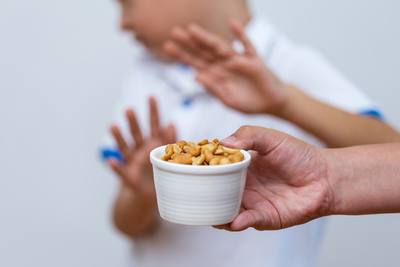The Rising Tide of Childhood Food Allergies
 A troubling trend has emerged in the United States over the past two decades: a significant increase in childhood food allergies across the country. Once considered rare, these allergies now affect approximately 1 in 13 children, which translates to roughly two in every classroom.
A troubling trend has emerged in the United States over the past two decades: a significant increase in childhood food allergies across the country. Once considered rare, these allergies now affect approximately 1 in 13 children, which translates to roughly two in every classroom.
“This rise is not just a statistical anomaly,” says Lauren Whalen, a certified physician assistant at Schweiger Dermatology & Allergy. “It has profound implications for the health and well-being of our children, impacting their daily lives, school activities and family dynamics.” Understanding the factors behind this increase is crucial for both prevention and management.
Why Is It Happening?
Several hypotheses have emerged to explain this surge in allergies. One of the most widely discussed is the “hygiene hypothesis,” which posits that reduced exposure to infections and microbes in early childhood may lead to an overactive immune response, resulting in allergies.
Additionally, changes in dietary practices, such as delayed introduction of allergenic foods like peanuts and eggs, may play a role. “Studies suggest that early exposure to these foods, contrary to past recommendations, can actually reduce the risk of developing allergies,” explains Whalen. This shift in our understanding has prompted new guidelines for parents, emphasizing the importance of introducing allergenic foods in a timely manner.
Education Is Paramount
“As we navigate this complex landscape, the role of education cannot be overstated,” she says. “Parents, schools and communities must work together to create a safe environment for children with food allergies.”
This includes proper training on allergy management and awareness of potential allergens in meals and snacks. Ongoing research also is essential to uncover the underlying mechanisms of food allergies and develop effective treatments. “By fostering collaboration and understanding, we can better protect our children and reduce the burden of food allergies in the years to come,” Whalen says.

If you think your child has a food allergy, schedule an appointment with one of Schweiger’s board-certified allergy providers. They perform different types of precision testing to determine whether a particular allergen is at play and provide a customized treatment plan so your child stays comfortable and healthy.
To schedule an appointment, book online or call (844) 760-3380.
